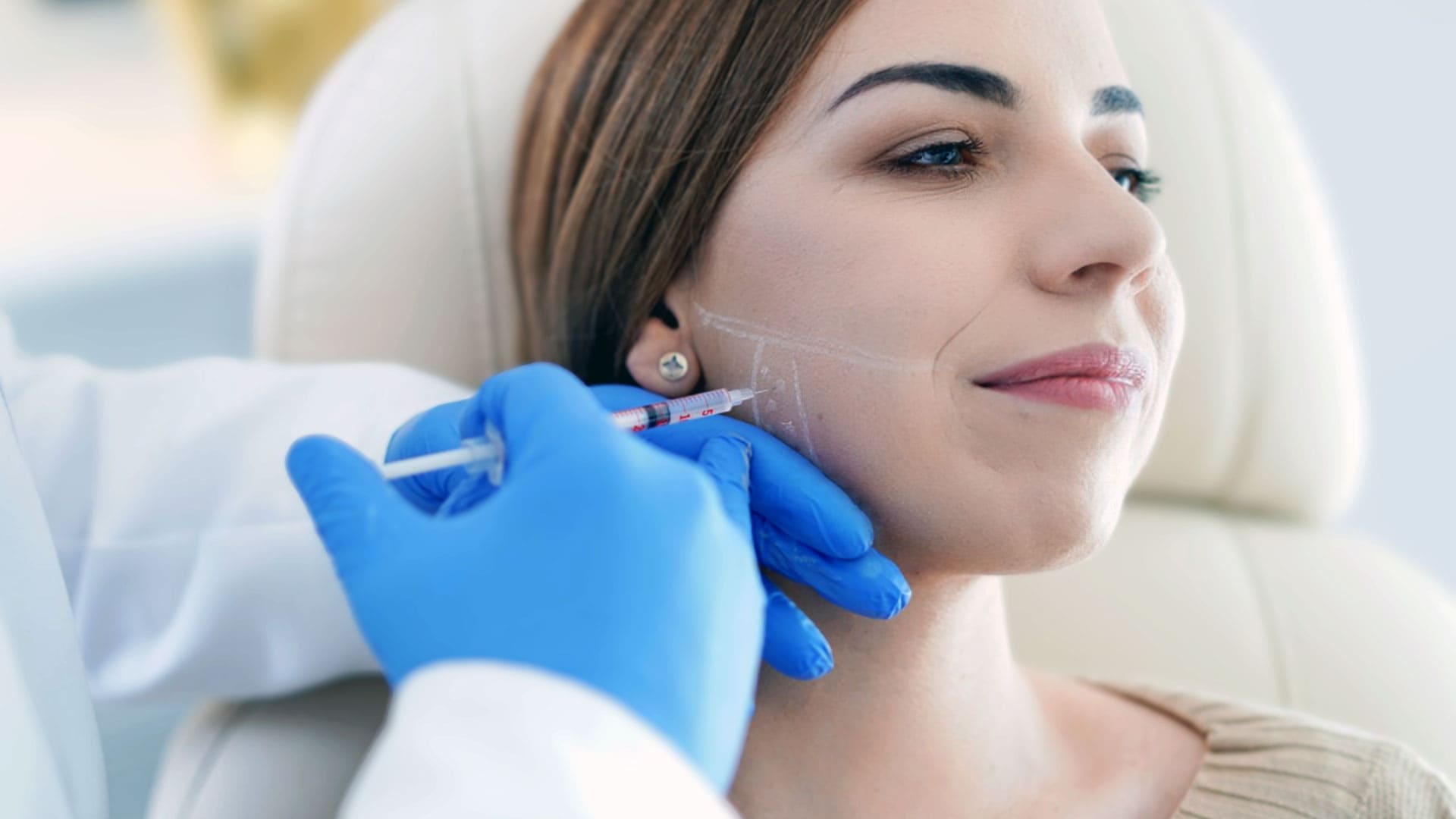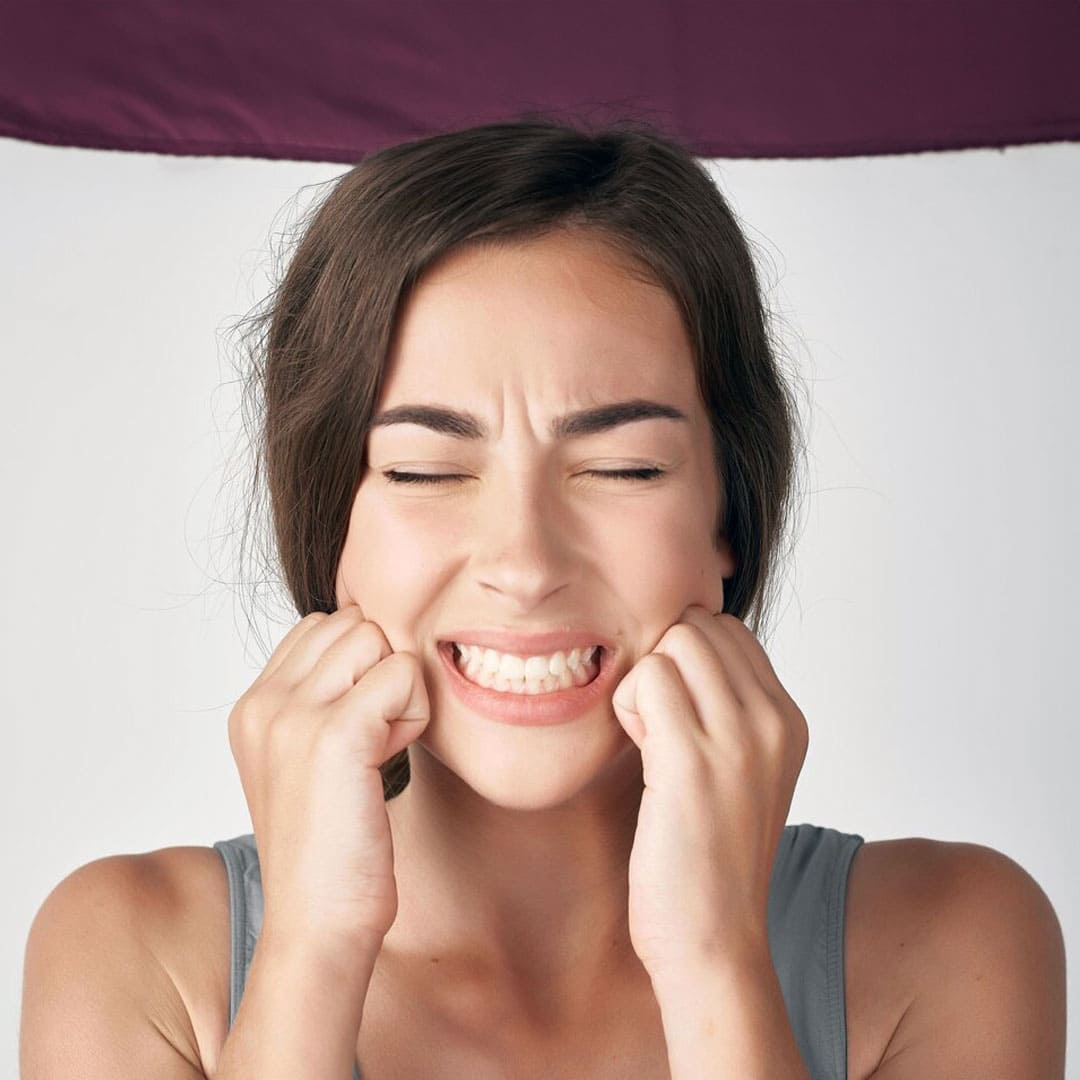
Teeth Clenching
and Grinding
Teeth Clenching and Grinding
Teeth clenching and grinding, medically known as bruxism, is a condition that is often confused with jaw joint disorders (Temporomandibular Dysfunction – TMD). Bruxism is often caused by factors such as stress, anxiety or sleep disorders and refers to the unconscious clenching or grinding of the teeth. This can put pressure on the jaw joint and cause pain, but is not a direct cause of TMD. However, bruxism can increase or worsen the symptoms of TMD.
Symptoms of Teeth Clenching and Grinding
Wear on Teeth: Clenching or grinding the teeth can cause the tooth surfaces to wear down, which can lead to tooth sensitivity and even tooth loss.
Jaw Muscle Growth (Hypertrophy): Teeth clenching and grinding can cause the jaw muscles to enlarge (hypertrophy). In particular, enlargement of the masseter muscle can lead to widening of the lower part of the face.
Jaw Joint Pain and Discomfort:
Bruxism can cause extra stress on the jaw joint, causing symptoms such as pain, jaw locking and noise from the jaw.
How Can You Recognize Bruxism?
Because bruxism usually occurs at night, many people may not be aware of it. Symptoms include jaw pain in the morning, headaches, tooth sensitivity and your partner noticing that you grind your teeth at night. Your dentist can diagnose bruxism by looking for signs such as wear marks on the teeth or muscle fatigue.

Bruxism Treatment Methods
-
Night Protective Plates:
-
Night guards are devices used to prevent teeth clenching and grinding. These aligners prevent teeth from rubbing against each other and prevent tooth wear. They also relieve muscle fatigue by reducing stress on the jaw muscles.
-
Botox Treatment:
-
Botox injections can be used to reduce hypertrophy of the masseter muscles. By relaxing the muscles, this treatment relieves the symptoms of teeth clenching and grinding. However, Botox treatment may not be suitable for all patients and should be evaluated by a dentist.
-
Stress Management and Behavioral Therapies:
-
One of the underlying causes of bruxism may be stress. Therefore, stress management techniques and behavioral therapies can be helpful in reducing teeth clenching and grinding habits.
Night guards are devices used to prevent teeth clenching and grinding. These aligners prevent teeth from rubbing against each other and prevent tooth wear. They also relieve muscle fatigue by reducing stress on the jaw muscles.
Botox injections can be used to reduce hypertrophy of the masseter muscles. By relaxing the muscles, this treatment relieves the symptoms of teeth clenching and grinding. However, Botox treatment may not be suitable for all patients and should be evaluated by a dentist.
One of the underlying causes of bruxism may be stress. Therefore, stress management techniques and behavioral therapies can be helpful in reducing teeth clenching and grinding habits.